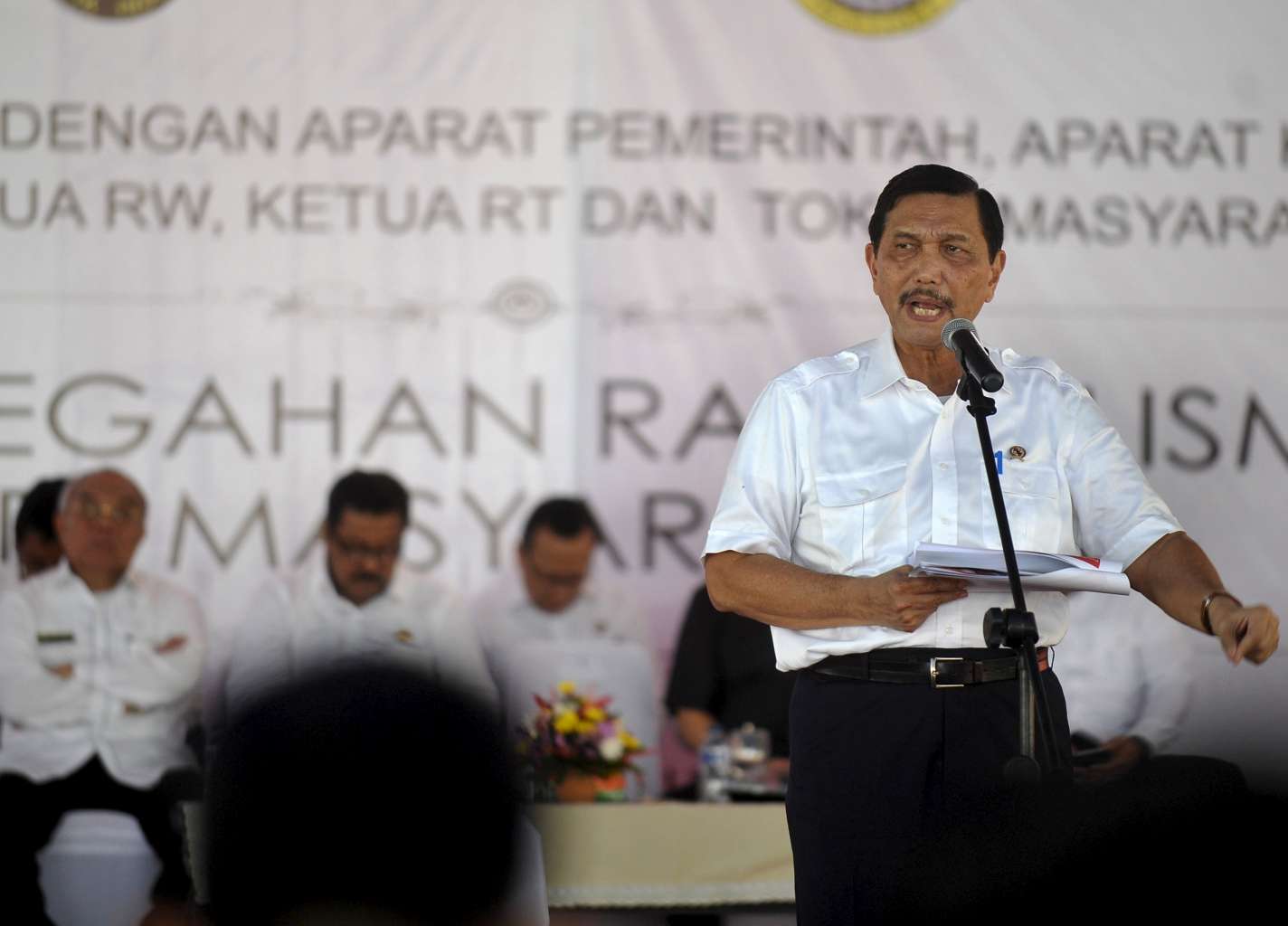Indonesia to finalise joint patrol plan in South China Sea with Malaysia, Philippines
Sign up now: Get insights on the biggest stories in Malaysia

Indonesia's Coordinating Minister for Political, Legal and Security Affairs Luhut Pandjaitan says more needs to be done to deter piracy.
PHOTO: REUTERS
Francis Chan
Follow topic:
Indonesia, Malaysia and the Philippines are expected to finalise plans for joint patrols in piracy-prone areas in the South China Sea at a trilateral meeting in Yogyakarta on Thursday (May 5).
The gathering of foreign ministers and armed forces chiefs from the three countries comes after recent kidnappings in the waters off southern Philippines and north of Borneo, where Indonesia shares a border with Malaysia.
The officials will first call on President Joko Widodo at the Gedung Agung presidential palace in the city, before meeting to discuss how they can cooperate to further enhance security in the region.
In the past five weeks, 14 Indonesian and four Malaysian seamen were abducted from their boats by gunmen believed to have ties with the Abu Sayyaf terrorist group.
Ten Indonesians seized at the end of March were released on May 1 and have since returned home.
Indonesia's Coordinating Minister for Political, Legal and Security Affairs Luhut Pandjaitan had said that more needs to be done to deter piracy before the kidnappings become a booming business as it has evolved into in Somalia.
Experts say the joint patrols may take the form of the successful Malacca Straits Patrol (MSP), which was established on April 21, 2006, by the navies of Singapore, Indonesia, Thailand and Malaysia.
The MSP is a set of cooperative measures made up of the Malacca Strait Sea Patrol (MSSP); "Eyes in the Sky" aerial patrols; and the MSP Intelligence Exchange Group.
The navy chiefs of Indonesia, Singapore and Thailand as well as Malaysia's deputy chief of navy had gathered at Singapore's Changi Naval Base on April 21 to commemorate the MSP's 10th anniversary.
The MSSP has been successful in tackling piracy in South-east Asia, significantly reducing the number of piracy attacks in the busy sea lane, two experts from the University of Indonesia (UI) told The Jakarta Post on May 3.
"Notwithstanding the success of the joint patrol in the Malacca Strait as a lesson learned, a joint patrol in the sea off Kalimantan would be a challenging task with different factors to take into account,"said Mr Christian Guntur Lebang and Mr Muhamad Arif from UI.
Indonesian Foreign Minister Retno Marsudi did not rule out the possibility of turning to a model similar to the MSSP, but she added that any cooperation among the three countries must be agreed on without any of them sacrificing their sovereignty.
"Negotiations will go on until we find a common understanding and are able to conduct joint operations," she said on Wednesday.
Philippine Foreign Secretary Jose Rene Almendras said after calling on Ms Retno he was grateful that his Indonesian counterpart and President Joko had initiated the trilateral meeting.
"We are here, contrary to reports that the Philippines is not supportive of the proposed coordinated patrols and coordinated activities and information sharing," he said at a press conference at the Foreign Affairs Ministry in Jakarta.
"Our presence here is testament that we, the Philippines, are very very interested in coming up and participating in the discussions so that agreements can happen."
He added that the release of the 10 Indonesian seamen was "very meaningful" to the Philippines.
"We are very pleased and happy that it has happened but I must say that the Indonesian people must acknowledge the fact that the Indonesian government did its very best to get them released. Their efforts, their initiatives, which we work with them on, have resulted in the (release) and we hope the release of the rest of the hostages will also happen."
tkchan@sph.com.sg

